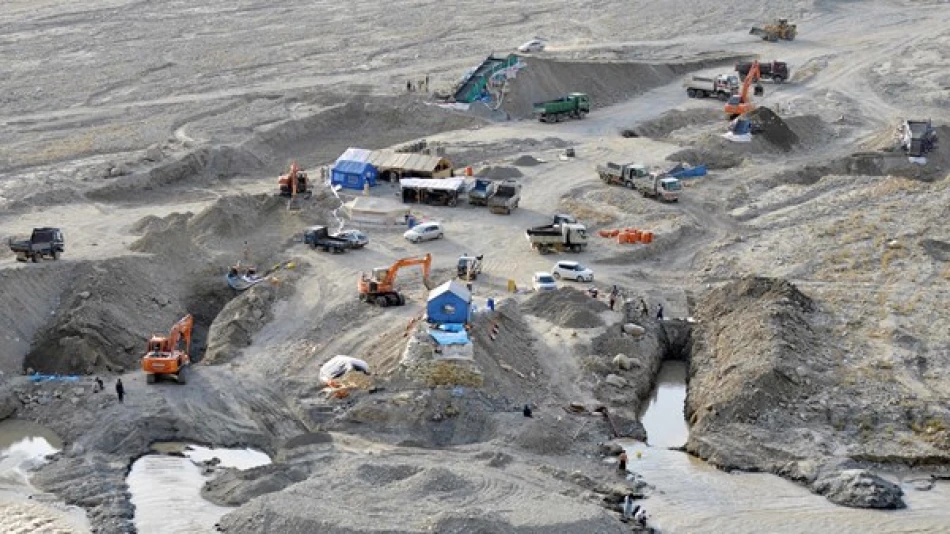
Tragic Coal Mine Collapse Leaves Casualties in Northern Afghanistan
Afghanistan's Mining Crisis Deepens as Coal Mine Collapse Claims Six Lives
A coal mine collapse in Afghanistan's northern Baghlan province has killed six workers and injured 18 others, highlighting the dangerous conditions plaguing the country's critical mining sector. The incident underscores how Afghanistan's economic isolation and lack of modern safety infrastructure continue to put workers at deadly risk while the Taliban government struggles to monetize the nation's estimated $1 trillion in mineral wealth.
Latest Disaster Follows Pattern of Mining Accidents
Sayed Mustafa Hashemi, the regional media and culture official, confirmed that part of the mine collapsed suddenly on Tuesday, sending the injured workers to local hospitals. Authorities have not disclosed the severity of the injuries, raising concerns about the adequacy of medical facilities in the remote northern region.
This latest tragedy follows a concerning pattern of mining accidents across Afghanistan. Just two months ago, 22 men were trapped in a coal mine in northern Samangan province before being rescued. Baghlan province itself witnessed a similar disaster in February 2022 that claimed at least ten workers' lives.
Manual Operations Create Deadly Working Conditions
Afghanistan's mining sector relies heavily on manual extraction methods with minimal safety equipment, creating inherently dangerous working conditions. Coal mining, alongside marble, metals, gold, and precious stones, represents one of the country's most significant natural resource sectors, yet the industry operates with little oversight or modern safety protocols.
The reliance on hand-extraction methods stems from Afghanistan's economic isolation following the Taliban's return to power in 2021. International sanctions and the freezing of government assets have left the country unable to invest in modern mining equipment or safety infrastructure that could prevent such accidents.
Economic Desperation Drives Risky Mining Operations
The continued operation of dangerous mines reflects Afghanistan's desperate economic situation. With unemployment soaring and international aid severely restricted, mining offers one of the few available income sources for many Afghans, despite the obvious risks.
Unlike resource-rich nations such as the UAE or Kazakhstan that have attracted international mining partnerships with modern safety standards, Afghanistan's mining sector remains largely isolated from global expertise and investment. The Taliban government has struggled to attract legitimate foreign investment while maintaining control over extraction operations.
Untapped Potential Remains Locked Away
Afghanistan sits on an estimated $1 trillion worth of mineral deposits, including significant lithium reserves crucial for battery production. However, the combination of political instability, international sanctions, and inadequate infrastructure has prevented the country from developing these resources safely or profitably.
The repeated mining accidents highlight a broader challenge facing the Taliban administration: how to generate revenue from natural resources without the international partnerships, modern equipment, and safety expertise that successful mining operations require. Until these fundamental issues are addressed, Afghan miners will likely continue facing deadly working conditions while the country's mineral wealth remains largely untapped.
Most Viewed News

 Layla Al Mansoori
Layla Al Mansoori






